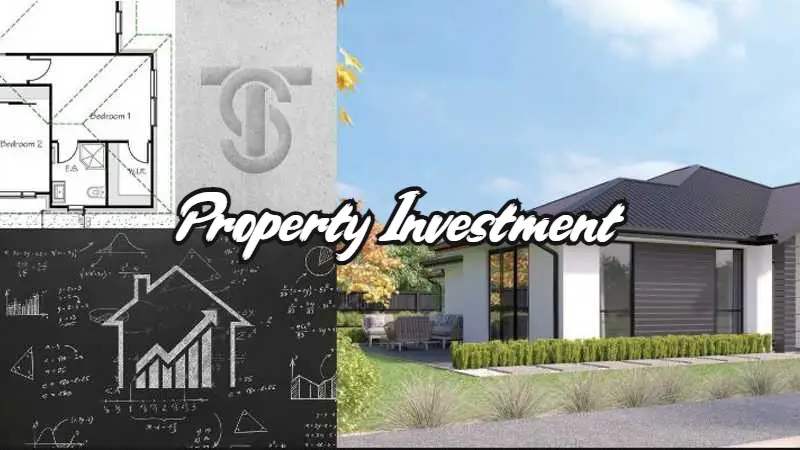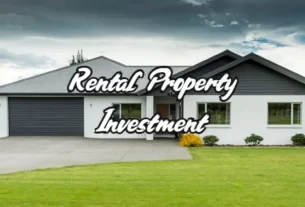Property Investment
Learn everything you need to know about property investment in New Zealand, including the benefits, risks and financial opportunities. New Zealand is a country that has seen brisk property market activity in recent years, thanks to the high levels of immigration and, more importantly, foreign investment in real estate.

Property Investment
Learn the basics of property investment in New Zealand : Property Investment NZ
Find out what type of investor you would like to be when it comes to property investment in New Zealand : Passive Or Active
Check out what strategies will suit you the best when it comes to property investment in New Zealand : Investment Strategies in NZ
Check out some of the best place to investment in New Zealand to get the best returns : Best Place To Invest In NZ
Check out some of the benefits of investing in property in New Zealand. Advantages of Property investment in NZ
Check out some of the risk associated with property investment, some of these will make you think twice : Property Investment Risks In New Zealand
Things you need to know when it comes to property investment laws. This could save you a lot of money in the long run : Investment Property Laws In NZ
Learn the basic of tax obligations when it comes to property investment in New Zealand. Property Investment Tax in NZ
Property Investment for Beginners 101
Over the past decade, the property market has been experiencing tremendous growth, with property values skyrocketing. But like all monetary investments, there are risks involved with property investment in New Zealand that you need to consider before moving forward. This article takes a deep dive into investor trends in NZ and the concerns they face when diving into the market.
What to consider when buying an investment property in New Zealand :
New Zealand’s property market may be red hot right now, but buying an investment property takes careful research and a long-term view.
If you’re looking to dive into property investment in New Zealand, there are a few key questions to consider before taking the plunge:
Residential Rental Property Investments :
Residential properties are the most common, with houses and apartments making up a large portion of the properties on offer. This type of property provides an opportunity for both capital appreciation and rental income.
You can choose from a single property or a portfolio of different properties.
Commercial Property Investment :
Commercial properties produce income from tenants through rent and often have long-term leases to mitigate risk. These properties include commercial premises such as offices and warehouses and may be combined with residential elements such as apartment blocks or retirement villages.
Commercial properties are usually owned by companies and leased out for business purposes. However, it’s also possible for private investors to buy offices, retail stores, warehouses and industrial buildings and lease them out for a profit.
Rural land is also known as agricultural land and can provide rental income from lease arrangements and potential capital gains when the property is sold.
There is also the potential to earn an additional income from selling products grown on the land, such as milk or livestock. However, this should not be relied upon to cover day-to-day running costs, which will generally be higher than those associated with commercial property investments.
A popular option for new investors is a residential buy-to-let investment. With buy-to-let investments, you purchase a residential property and rent it out (either furnished or unfurnished).
When the rental income covers the mortgage payments, you’re making money on paper – but remember that there are other expenses involved in maintaining a rental property, so your actual profits will not be quite so high!
Passive or active property investment
Investors fall into two camps – passive investors who are in it for the long term (10 years or more) and active investors who enjoy renovating properties or operating short-term accommodation.
Decide whether you want to buy a property that needs work or one that’s ready to rent. If you choose the former, what’s your time frame for completing the renovation and getting tenants in?
Where do you want to invest?
You might be happy to invest in another part of New Zealand. Or, if you live in Auckland, you may want to look at other parts of the country where prices are lower and yields higher.
Or you could buy locally, so that you can drive past your investment property every day. (It pays to know when tenants move out so that you can get on top of repairs quickly.)
How much can I afford?
Once you’ve established that you’re ready to purchase an investment property, it’s time to start looking at your finances. The first thing to consider is whether you’re financially able to buy a property that’s purely for investment purposes.
Suppose you have limited savings and/or other debt commitments. In that case, it may be more realistic for you to purchase a home for yourself first before looking at adding an investment property to your portfolio. This is because banks tend to treat owner-occupied properties differently from those that are just for investment purposes.
How much deposit do I need?
The amount required for a mortgage deposit will depend on your lender. If you want to buy a home for $100,000, for example, some lenders may require you to put down only a 5% deposit (meaning you would need $5,000). However, most banks now require at least a 20% deposit (or $20,000).
What are my other upfront costs?
There are various other costs that have to be covered before purchasing a property or getting your mortgage application signed off by your lender. These include legal fees, insurance, and rates.
It would help to consider whether you will be paying any commission fees to real estate agents. The rule of thumb is that you should expect at least 5% of the property’s total purchase price.
Property Investment Strategies in New Zealand that Work
For investors of all experience levels, property investment in New Zealand can be a great way to build wealth. But it’s essential to understand the strategy you’re adopting and how it will work for you in the long term.
The secret to property investment is to buy in a location people want to live in. If you choose wisely, your property will hold its value and appreciate over the longer term, even if the market dips at times. This means that when you sell, you’ll make a profit.
The key to successful property investment is identifying a profitable strategy that works for you. There are many different ways to go about investing in property, but here are our top strategies:
What Beginner Investors Need To Know
Positive cash flow :
By buying a property that earns more income from rent than it costs to maintain, positive cash flow properties mean you get paid each week by your tenants.
Over time, the revenue from the rent will pay off your mortgage, meaning that when you eventually sell the house, you receive a lump sum payment – all without having to put any money into it!
Buy and hold :
This is one of the simpler investment strategies and one that involves buying a property and renting it out over the long term.
The aim of this strategy is to generate immediate income while also building equity over time as the property increases in value.
Flip it :
Flipping a property means buying a run-down or otherwise undervalued house or apartment, renovating it and selling it at a higher price.
This strategy can generate significant returns, but it’s not without risk — there’s no guarantee your renovation will increase the value of your property, so you need to be confident about your renovation abilities and have an understanding of what buyers are looking for in your area.
Renovate and rent :
This is another option for those who want to get involved in renovations — rather than sell your newly renovated property; you rent it out instead.
Direct residential property investment :
This is the traditional way to invest in residential property. You buy a house that you rent out to tenants and manage the property yourself.
Direct commercial property investment :
This is commonly used by businesses and more prominent investors who want to own their own office space or retail outlet.
Residential property funds :
These funds invest directly in residential properties, using money from a large number of investors. A fund manager makes all investment decisions and manages tenancy issues on behalf of the fund. This can be an easy way for small investors to get exposure to residential property investment, but it’s still essential to check the details carefully before investing.
Where are the Best Places to Invest In Property ?
Buying an investment property is a major decision and one you should make after careful consideration of the factors that could influence your investment. These include location, local demographics, property types and price points, as well as the potential for future capital growth.
To find the best places to buy property in New Zealand for investment, look no further than the major cities. While the cost of houses tends to be higher in these locations, so is the potential for returns on your investment. Where you can find tenants is where you’ll want to invest. So which are the best locations to buy investment property in New Zealand?
Investment property in Auckland:
Auckland’s continually growing economy has a strong demand for rental properties due to the large number of young professionals who work and study here.
The median house price here is $850,000, while the average rent is $500 per week.
Investment property in Hamilton :
Hamilton is another great option for property investors. Thanks to its position as a key agricultural centre, its economy is rapidly growing.
As Hamilton grows economically and its population increases, so does its demand for housing.
Hamilton is one of the most attractive cities in New Zealand where you can invest in real estate — it offers excellent value for your money, and you can expect your property value to appreciate over time.
Investment property in Christchurch :
Christchurch offers investors several opportunities with its developing infrastructure projects and rising population. The median house price is $530,000, with an average rent of $390 per week.
With the city’s continuous development and booming economy, it is a great place to invest in real estate now for future capital growth
Investment property in Wellington :
The capital city of New Zealand provides its residents with employment opportunities across a wide range of industries. Wellington is home to many government and public sector jobs, meaning that it has lower unemployment than other cities in New Zealand.
The city also enjoys having many entertainment, shopping and recreational facilities close by, including some beautiful beaches. Here, the median house price is $550,000 with an average rent of $500 per week.
Wellington’s recent developments are attracting more people to the city, making it one of the best places to invest in New Zealand real estate.
Benefits of Property Investment in New Zealand
New Zealand has a robust economy, a stable government and an exceptional standard of living. This is true for both the country as a whole and for the capital city, Auckland. Its overall housing market is considered one of the most stable in the world, which is why it has become such an attractive place for overseas investors. Here are a few reasons why
Foreign buyers do not have to pay capital gains tax when selling or renting their property (apart from certain types of land.)
The country has a strong reputation for protecting investors from depreciation, which means that property values are more likely to rise over time than fall.
Mortgages are available at competitive rates, with rates currently between 4% and 5% per annum on average. It can be less expensive here than in many other countries to finance your investment.
There are no restrictions on foreign ownership (with the exception of land), meaning that you don’t need to set up a company or trust structure to purchase property here as an overseas investor.
Risks Associated with Property Investment in New Zealand
While it’s true that property investment is considered to be the bedrock of retirement savings, it’s also true that there are risks. If you’re not careful enough, you might end up with a property that doesn’t increase value. And if you’re buying for your children, don’t push them into making a decision that they might regret.
When you buy a property, it’s easy to forget that there could be other issues with the property that are not immediately visible.
Some of these issues might result from poor building practises or a lack of maintenance and regular inspections.
Buying a poorly constructed or maintained house can result in expensive repairs or remedial work to fix the problem. Undertaking these repairs may cost more than the property’s purchase price.
Bear in mind that property prices can rise and fall, sometimes significantly. If the value of your rental property falls below what you owe on it, you may need to sell at a loss.
If you decide to sell your property during a downswing, it could mean that you make a loss. You’ll need to keep your finger on the pulse to ensure that you don’t over-extend yourself financially.
There are two main reasons why your property might not increase in value:
You bought your property at the top of the market. If you purchased your property in 2007/08, you might have paid too much for it. Prices fell during the GFC and took a long time to recover. It’s important to consider how much prices have changed before buying a property.
You bought a property in an area without much demand. Again, this is something to consider before you buy a property. If there are no jobs or population growth nearby, it’s unlikely that your property will increase in value.
Overview of Risks
- You might buy a property that doesn’t increase in value.
- Rents might fall.
- Interest rates may rise, making it harder to pay back your mortgage.
- You might have a bad tenant who doesn’t pay the rent or damages your property.
The Laws and Regulations for Property Investment in New Zealand
There are a number of specific laws that apply to property investors in New Zealand. These are aimed at protecting tenants and ensuring the safety of rental properties.
Residential Tenancies Act 1986 :
This document sets out the rules for renting a residential property in New Zealand. It covers everything from general obligations and insurance through to rent, termination, repairs and renovations, and dispute resolution.
Health and Safety at Work Act 2015 :
This act aims to ensure the health and safety of all workers, visitors, contractors and volunteers on a property. This includes those working at home or remotely.
Building Act 2004 :
This act sets out the rules for building new properties, including restrictions on who can do what type of building work, how it should be done, and so on. The purpose is to ensure all properties meet certain minimum standards set out by the Building Code.
Before you get started, there are some things you need to know:
As a property investor, you must:
provide a record of tenancy agreements.
provide smoke alarms and other safety measures in your rental homes
Landlords must also take care of residential rental properties by:
Making sure they are safe, sanitary and secure
Ensuring they have adequate heating, insulation and ventilation
Making sure they comply with building and plumbing codes.
Property Investment Tax Obligations
You need to know your tax obligations before you invest in property. If you don’t get it right, you can be liable for penalties. And if you’re not aware of a tax obligation, that’s no excuse: ignorance is no defense.
We’ve outlined the main taxes you’ll encounter as a property investor. This guide is intended as an overview and should not be treated as advice. If you want specific advice about your situation, talk to your accountant or other professional advisers.
Here’s the lowdown on what you need to know:
Income Tax :
If you rent a residential property (house or apartment), your rental income is assessable for income tax.
Income from letting out a commercial property is also taxable :
You may incur some expenses relating to renting out your property, such as maintenance and advertising for tenants. When calculating your taxable income, you can claim these deductible expenses against your rental income.
Tax on capital gains :
Capital gain is the difference between an asset’s purchase price and sale price minus any deductible expenses (e.g. broker costs and legal fees) incurred during the sale process. If you sell an investment property at a profit, this will be subject to tax. However, if you make a loss on a sale, capital losses may be used to reduce any other taxable capital gains made in that financial year or carried forward to future years.



